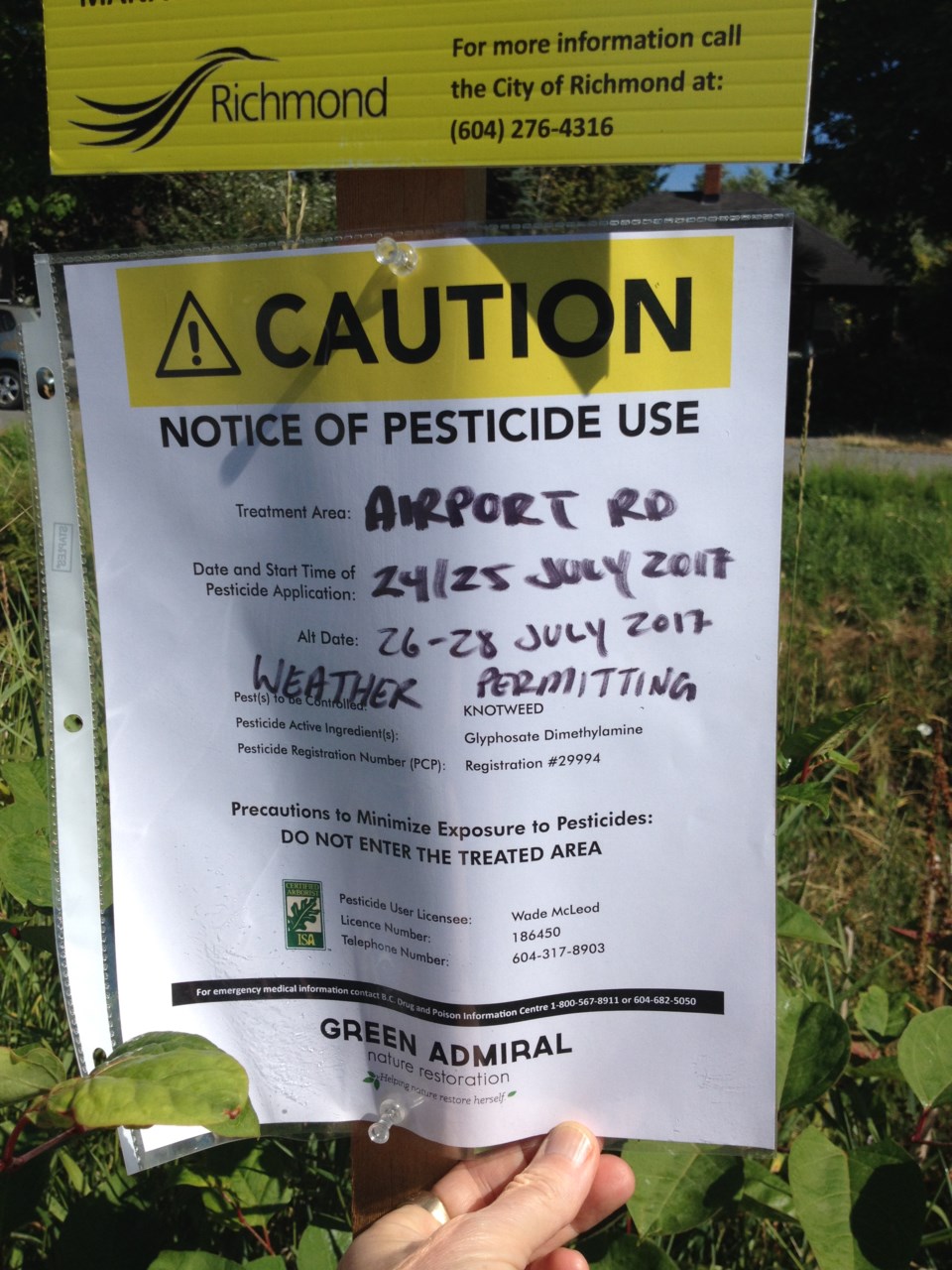Dear Editor,
A few years ago Richmond council unanimously declared the city a GMO-free zone. Though it is not an entirely enforceable bylaw, it was a wise position, erring on the side of caution. Last week’s California legal decision implicating Monsanto in a worker’s cancer beckoned me to consider the widespread use of Monsanto’s glyphosate-containing weed-killer (tradenamed Roundup) back home in Richmond. This was underlined Monday when a gardener at a neighbourhood property was spraying it onto some harmless driveway “weeds.”
Actually, one main reason GMO crops exist at all is because they resist death by Monsanto’s own weed-killer. They have been marketed as Roundup Ready crops, because they have been genetically modified to withstand Roundup.
In fact, it may not even be the GMO’s that are the biggest threat, but their attendant chemicals. Nothing else survives, perhaps not even humans, as it inevitably ends up in our soil, food supply and bodies.
But back here in Richmond, Roundup is being liberally applied to our supposedly “GMO-free” soil by city workers to kill Japanese Knotweed next to sloughs and the Fraser River. These areas are marked and sometimes cordoned off, and the signs say it’s just topically landing on the soil. But do the math. It does not compute. It’s obviously deadly stuff because the plants I saw are quite dead after a few days exposure. It doesn’t break down and disappear.
Meanwhile, despite the blanket GMO ban, many Richmond farmers and gardeners routinely use this proven carcinogen in their fields and lawns, to kill weeds, to kill potato tops for easier harvest, etc. etc.
More than a carcinogen, it’s a neurotoxin, bad for bees, and kills healthy bacteria in soils and in animals’ bodies, including our digestive tracts, which ties to brain health. No wonder there is rampant digestive and brain disease (perhaps feeding these bad decisions).
We continue to pollute our own environment while research and clinical use has shown, for example, that Japanese Knotweed is an effective herb against Lyme Disease.
These “invasives” are only filling in gaps because the natural plant balance is upset. Same with Himalaya Blackberries, English ivy and Holly.
I don’t see glyphosate used on those introduced species. Perhaps there is a compensatory way to alleviate farmers’ battles with weeds, like giving them a good price on all that “weed” biomass for biofuel conversion.
Reaching into the future, Richmond has so much biomass that we could consider ways to become fuel self-sufficient by using alcohol to run our cars.
I’m not even going to talk about how farmers without ditch irrigation shouldn’t be paying full price on city water... whoops . I just did. Nuff said!
Glen Andersen
Richmond



